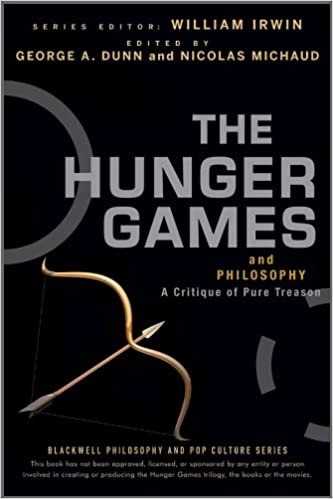Reading Level
What is the reading level of The Hunger Games and Philosophy: A Critique of Pure Treason?
Analysing the books in the series, we estimate that the reading level of The Hunger Games and Philosophy: A Critique of Pure Treason is 12th and 13th grade.
Expert Readability Tests for
The Hunger Games and Philosophy: A Critique of Pure Treason
| Readability Test | Reading Level |
|---|---|
| Flesch Kincaid Scale | Grade 12 |
| SMOG Index | Grade 13 |
| Coleman Liau Index | Grade 10 |
| Dale Chall Readability Score | Grade 8 |
Reading Time
6 hrs 7 mins
How long to read The Hunger Games and Philosophy: A Critique of Pure Treason?
The estimated word count of The Hunger Games and Philosophy: A Critique of Pure Treason is 91,605 words.
A person reading at the average speed of 250 words/min, will finish the book in 6 hrs 7 mins. At a slower speed of 150 words/min, they will finish it in 10 hrs 11 mins. At a faster speed of 450 words/min, they will finish it in 3 hrs 24 mins.
| The Hunger Games and Philosophy: A Critique of Pure Treason - 91,605 words | ||
|---|---|---|
| Reading Speed | Time to Read | |
| Slow | 150 words/min | 10 hrs 11 mins |
| Average | 250 words/min | 6 hrs 7 mins |
| Fast | 450 words/min | 3 hrs 24 mins |
- Authors
-
George A. DunnNicolas Michaud
More about The Hunger Games and Philosophy: A Critique of Pure Treason
91,605 words
Word Count
for The Hunger Games and Philosophy: A Critique of Pure Treason
320 pages
Pages
9 hours and 51 minutes
Audiobook length
Description
A philosophical exploration of Suzanne Collins's New York Times bestselling series, just in time for the release of The Hunger Games movie Katniss Everdeen is "the girl who was on fire," but she is also the girl who made us think, dream, question authority, and rebel. The post-apocalyptic world of Panem's twelve districts is a divided society on the brink of war and struggling to survive, while the Capitol lives in the lap of luxury and pure contentment. At every turn in the Hunger Games trilogy, Katniss, Peeta, Gale, and their many allies wrestle with harrowing choices and ethical dilemmas that push them to the brink. Is it okay for Katniss to break the law to ensure her family's survival? Do ordinary moral rules apply in the Arena? Can the world of The Hunger Games shine a light into the dark corners of our world? Why do we often enjoy watching others suffer? How can we distinguish between what's Real and Not Real? This book draws on some of history's most engaging philosophical thinkers to take you deeper into the story and its themes, such as sacrifice, altruism, moral choice, and gender. Gives you new insights into the Hunger Games series and its key characters, plot lines, and ideas Examines important themes such as the state of nature, war, celebrity, authenticity, and social class Applies the perspective of some of world's greatest minds, such as Charles Darwin, Thomas Hobbes, Friedrich Nietzsche, Plato, and Immanuel Kant to the Hunger Games trilogy Covers all three books in the Hunger Games trilogy An essential companion for Hunger Games fans, this book will take you deeper into the dystopic world of Panem and into the minds and motivations of those who occupy it.
